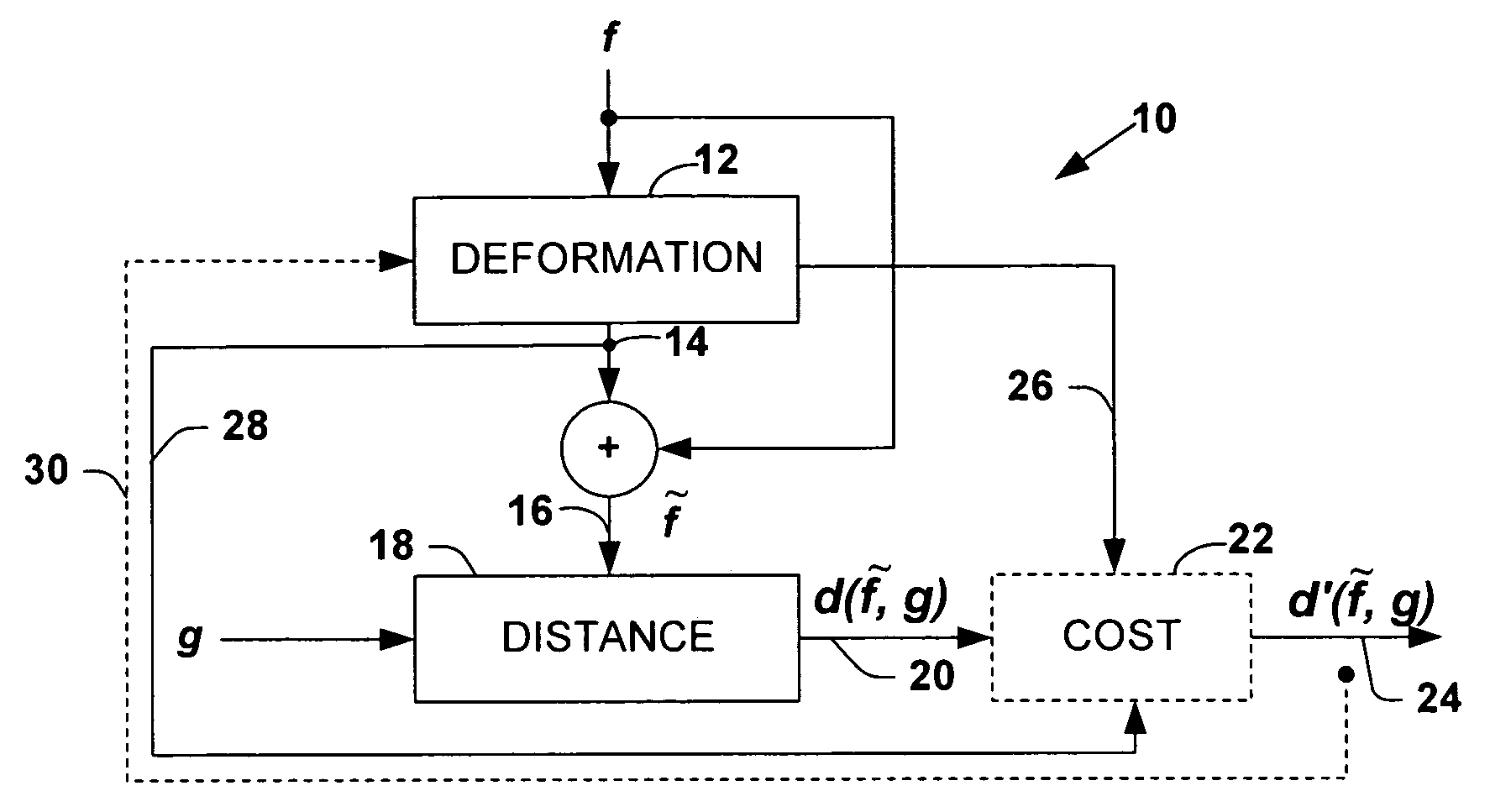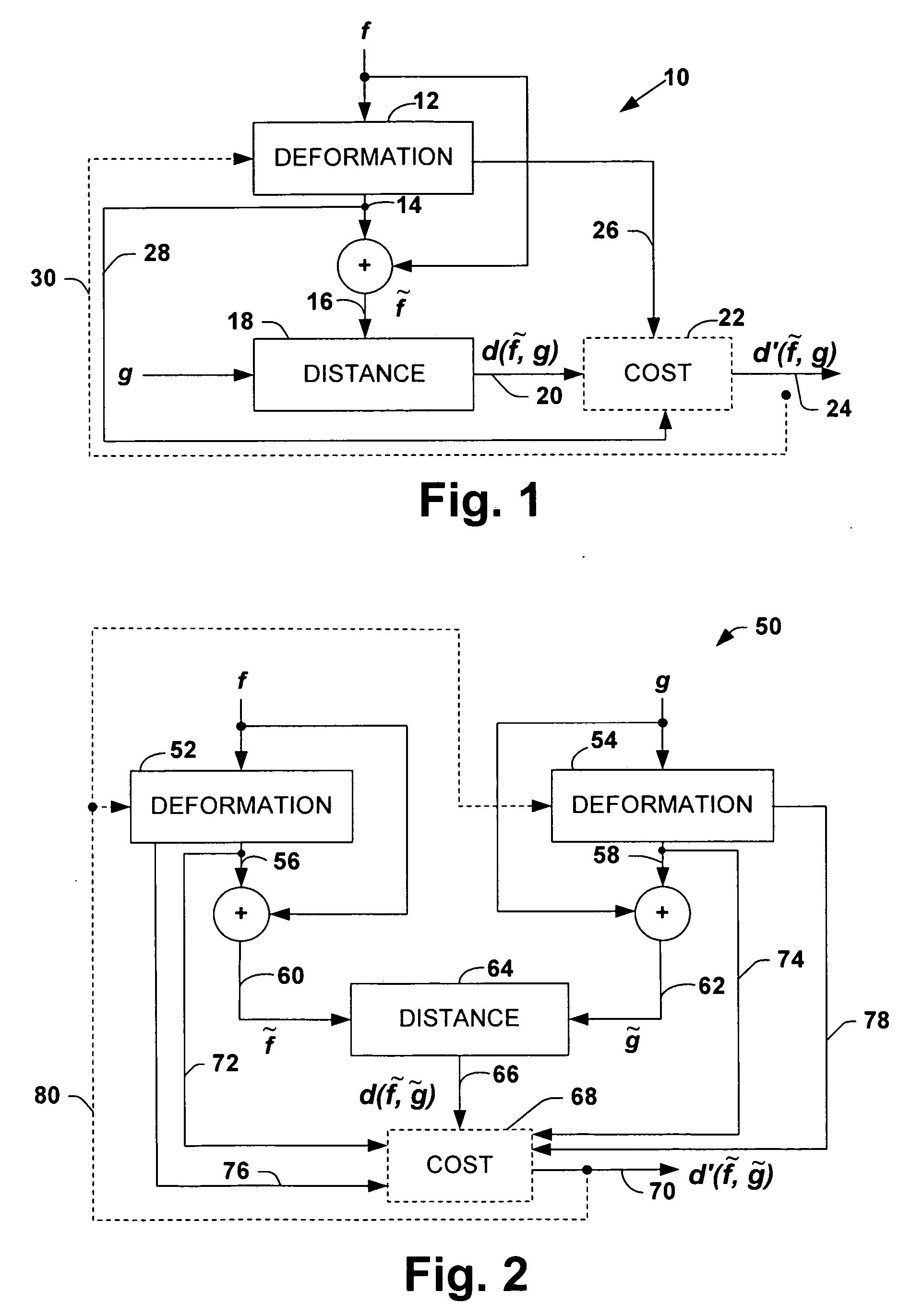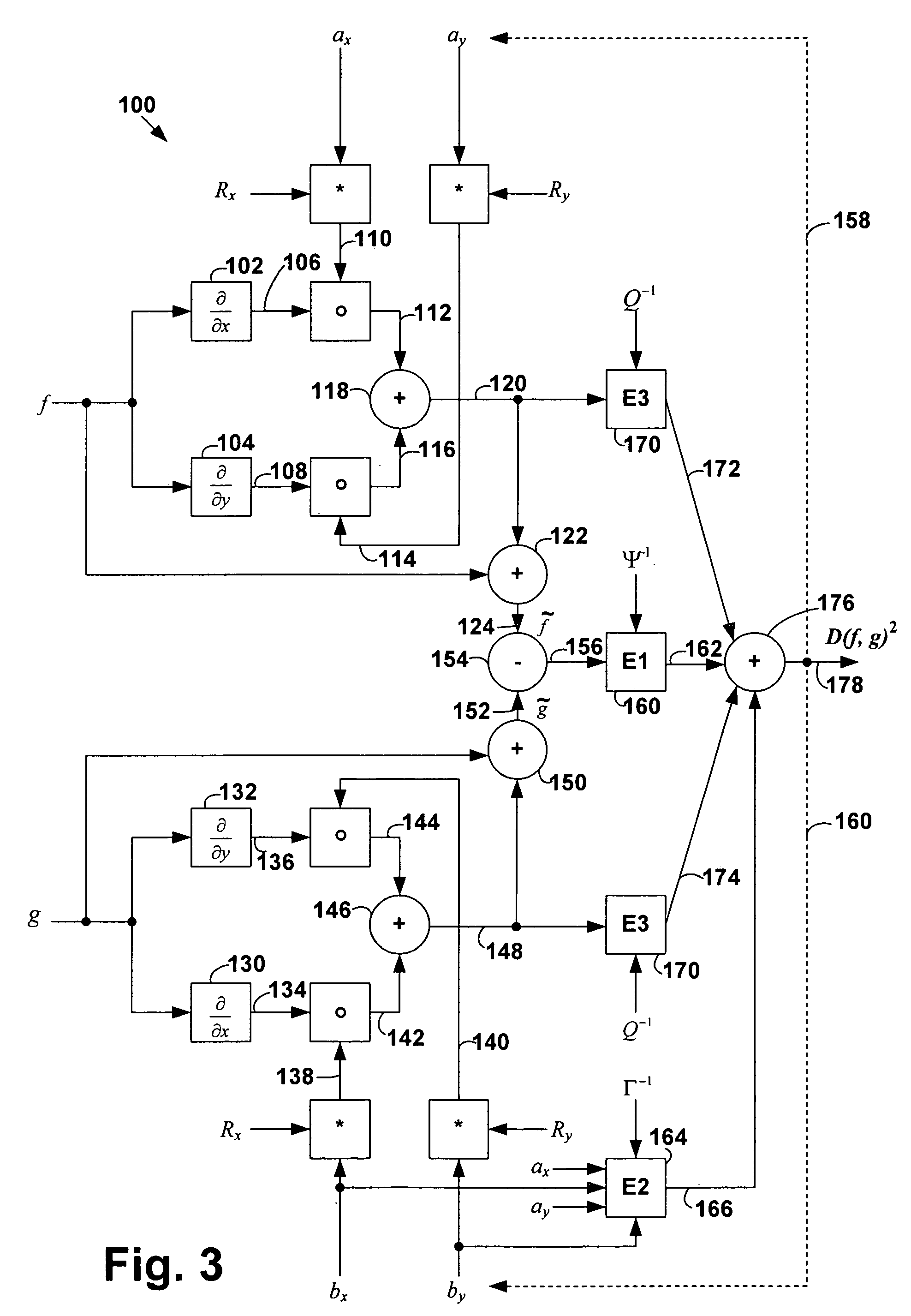System and method to facilitate pattern recognition by deformable matching
a technology of pattern recognition and matching, applied in the field of pattern recognition, can solve the problems of limited use of the euclidean distance algorithm, arbitrarily large values of euclidean distance, and the inability of tangent distance to specify loose constraints,
- Summary
- Abstract
- Description
- Claims
- Application Information
AI Technical Summary
Benefits of technology
Problems solved by technology
Method used
Image
Examples
Embodiment Construction
[0034] The present invention provides a new model that may be utilized to measure similarity between patterns to facilitate pattern recognition or matching. The present invention employs a deformation field that is a linear combination of functional basis vectors one or more patterns. The functional basis vectors may be represented as low frequency basis vectors, such as low-frequency wavelet basis vectors, which allow significantly fewer parameters to represent a wide range of realistic smooth deformations. In this way, a pattern recognition system, in accordance with the present invention, is less likely to use a deformation field to “erase” part of an image or “draw” a new part, because the field is usually not smooth.
[0035] In the following description, for purposes of explanation, certain details are set forth in order to provide a thorough understanding of the present invention. It will be evident to one skilled in the art, however, that the present invention may be practiced...
PUM
 Login to View More
Login to View More Abstract
Description
Claims
Application Information
 Login to View More
Login to View More - R&D
- Intellectual Property
- Life Sciences
- Materials
- Tech Scout
- Unparalleled Data Quality
- Higher Quality Content
- 60% Fewer Hallucinations
Browse by: Latest US Patents, China's latest patents, Technical Efficacy Thesaurus, Application Domain, Technology Topic, Popular Technical Reports.
© 2025 PatSnap. All rights reserved.Legal|Privacy policy|Modern Slavery Act Transparency Statement|Sitemap|About US| Contact US: help@patsnap.com



